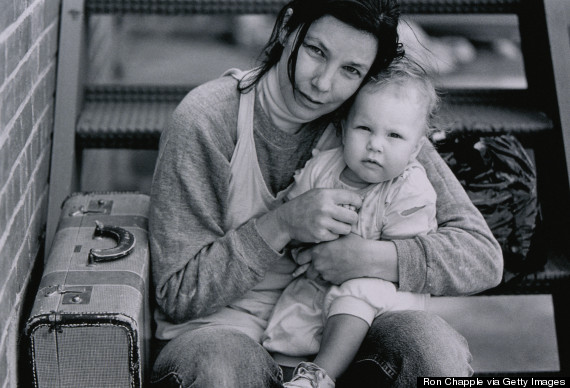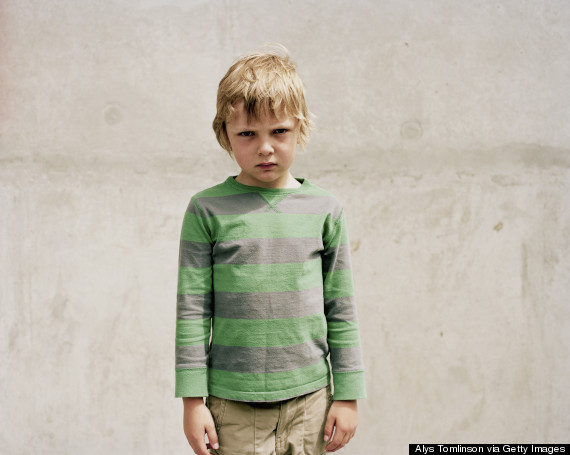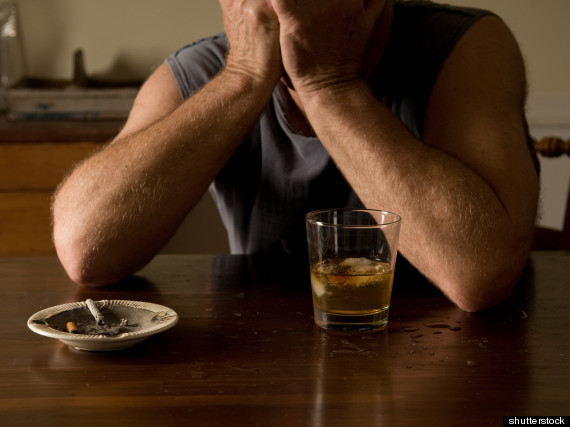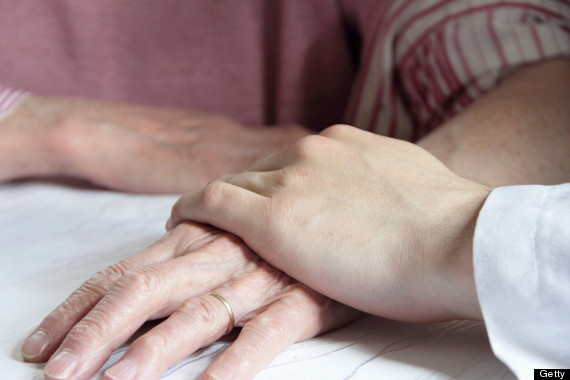
As the World Economic Forum opens this year's session in Davos, Switzerland -- bringing together world leaders to discuss the state of the global economy -- it has been hard not to focus on a single statistic, released by the relief organization Oxfam in advance of the proceedings: Currently, the 85 richest people in the world hold as much wealth as the bottom half of the entire global population, some 3.5 billion people.
"We cannot hope to win the fight against poverty without tackling inequality," said Oxfam's executive director Winnie Byanyima in a statement. With this in mind, it's important to consider, literally, how the other half lives. "Instead of moving forward together, people are increasingly separated by economic and political power, inevitably heightening social tensions and increasing the risk of societal breakdown," the report added.
There are health consequences too: Socioeconomic status is a significant predictor of physical and mental health outcomes -- not to mention overall well-being -- and the many links between poverty and poor health are a rising public health concern.
The World Health Organization has called poverty the "world's biggest killer and the greatest cause of ill-health and suffering." It's a statement that, unfortunately, is difficult to argue with. We often think of poverty's greatest threats as the ones affecting the world's most profoundly disadvantaged, such as violence, infectious disease and a lack of basic resources for everything from healthy food to medical care. But those living in poverty are also at an increased risk for chronic diseases, mental health problems, sleep disorders and stress -- ailments we more regularly associate with affluence, but that are no less profound among those living below the poverty line.
Of course, countless severe mental and physical health risks are associated with profound poverty, hunger and homelessness -- when one's basic needs are not being met, it's likely that physical and mental health will suffer. But there are also a number of ways that living close to, or even just above, the poverty threshold -- the ability to barely meet one's basic needs, and living on the lower end of the socioeconomic stratum -- can affect physical and mental health. The majority of research bases measurements of poverty level on income or consumption habits, and unless otherwise specified, the research featured below focuses on poverty in developed countries.
Here's what you need to know about the effect of poverty on mental health and well-being.
Poverty and income inequality can contribute to chronic stress.

Studies have established a link between income inequality and psychosocial stress, which can have significant physical and mental health implications, including higher mortality rates.
A large body of research has linked lower socioeconomic status with higher stress levels and risk of mental health problems, starting in some cases during childhood. Children growing up in poverty often experience chronic stress that can impair brain function in adulthood. Long-term stress has been related to a number of negative health outcomes, including an increased risk of cancer, weakened immune system, brain shrinkage, memory loss, premature aging, chronic diseases, and decreased longevity.
That influence can be seen in communities as well as individuals. "Those who live in deprived communities, where there is under-investment in the social and physical infrastructure, experience poor health, resulting in higher mortality for those of lower socio-economic class," Vijaya Murali and Femi Oyebode wrote in a paper published in the journal Advances in Psychiatric Treatment. "The effects of income inequality also spill over into society, causing stress, frustration and family disruption, which then increase the rates of crime, homicide and violence."
Those living in poverty face a greater risk of disease across the board.

It's unsurprising -- and well-established -- that poverty is linked to a greater risk of developing many diseases and chronic health conditions. As the World Health Organization put it, "Chronic diseases and poverty are interconnected in a vicious cycle" -- it is the poor who are most at risk for developing serious health conditions, and it is these conditions that can create or exacerbate poverty. Heart disease, stroke, diabetes, asthma, HIV/AIDS, dental problems, obesity and cancer are a handful of the many conditions that disproportionately affect individuals of lower socioeconomic status.
"The inverse association between socioeconomic level and risk of disease is one of the most pervasive and enduring observations in public health," wrote Murali and Oyebode.
Mothers living in poverty experience more anxiety.

Being a mother can cause stress and anxiety for any woman, but for those living in poverty, the stress of worrying about meeting their children's basic survival needs can take a significant toll. Research from Rutgers University conducted in 2012 surveyed nearly 5,000 parents, looking at both socioeconomic and mental health issues. The researchers found that mothers living in poverty -- in this case, considered those who received free food or had a difficult time paying their utility bills -- were nearly 2.5 times more likely to have symptoms warranting a diagnosis of generalized anxiety disorder than those who did not have trouble paying their bills. This anxiety likely stems from daily life challenges rather than pre-existing psychiatric conditions, the researchers explained.
"There are certain things that happen to people in life that cause people to have reactions," lead researcher Judith Baer told LiveScience. "The stress of not knowing where your next meal is coming from makes people anxious — and that's normal."
Financial instability can harm children's mental health.

The stress of growing up in poverty could take a major toll on a child's mental health. Early-life stress can be a risk factor in the development of major depression and post-traumatic stress disorder, according to 2012 research published in the journal PLOS One. Brain-imaging studies have also found that children from low-income families tend to have a smaller hippocampus than children from affluent families -- a smaller hippocampus has been associated with psychiatric problems such as schizophrenia, anti-social personality disorder and depression.
A recent University of Illinois study also found that poverty and chronic stress experienced in childhood can have an impact on a person's emotional regulation abilities in adulthood. The researchers used fMRI scans to find that childhood poverty at age nine and childhood exposure to chronic stressors effected brain activity in areas associated with regulating emotions at age 24.
"Our findings suggest that the stress-burden of growing up poor may be an underlying mechanism that accounts for the relationship between poverty as a child and how well your brain works as an adult," Dr. K. Luan Phan, University of Illinois at Chicago professor of psychiatry and senior author of the study said in a press release.
Poverty increases the risk of sleep disorders.

Sleep disorders including insomnia and sleep apnea are more common among lower-income cohorts. And more generally, poor sleep quality is strongly associated with poverty and race. A 2010 study published in the journal BMC Public Health found that those living below the poverty line experienced significantly worse sleep quality than individuals living above the poverty line. Environmental exposures, occupational and psychosocial conditions, and maybe even genetic factors could be partially to blame, according to sleep researcher Susan Redline and epidemiologist Dr. Michelle A. Williams.
Over time, sleep deprivation can contribute to elevated stress levels, weight gain, and a host of other negative health outcomes, including an increased risk of diabetes, heart disease and stroke.
Children of lower socioeconomic status may struggle with their grades and behavior in school.

Children growing up in poverty are more likely to be affected by social and emotional instability within their families, and are less likely than affluent children to have their basic needs for healthy emotional growth met. This can hinder social and emotional growth, and can ultimately contribute to poor grades and behavior at school, according to research compiled by the Association for Supervision and Curriculum Development.
Lack of parental involvement in the child's academic life could also be a factor in poor performance at school. According to research from the U.S. Department of Health and Human Services, only a third of low-income parents were regularly involved in three or more of their child's school activities, compared to nearly 60 percent of parents living above the poverty line.
There's a higher risk of substance abuse and addiction.

Substance abuse and poverty frequently go hand-in-hand, and addiction-related issues are often deeply rooted in social context. A number of other studies have shed light on other aspects of this link between low socioeconomic status and substance abuse. The National Survey on Drug Use and Health has repeatedly determined low income to be associated with cigarette smoking and illegal drug use. Research has found that low household income and poor family conditions during childhood are correlated with cigarette smoking, and that homelessness is a significant predictor of illegal drug use among adolescents.
On the bright side, relative poverty is linked with greater empathy and altruism.

The challenges of living in poverty may make individuals more attuned to the needs and struggles of others. A 2010 study published in the journal Psychological Science found that people of lower socioeconomic status were better at reading others' facial expressions than upperclass individuals -- a key sign of empathy and emotional intelligence. The same researchers also found that the poor are more likely to give to others and act altruistically, in addition to being more trusting.
"Lower-class environments are much different from upper-class environments. Lower-class individuals have to respond chronically to a number of vulnerabilities and social threats," study co-author Michael Kraus of UC San Francisco explained in a press release. "They give more and help more. If someone's in need, they'll respond. What I think is really interesting about that is, it kind of shows there's all this strength to the lower-class identity: greater empathy, more altruism, and finer attunement to other people."
